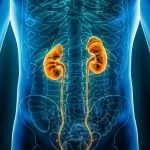Nearly eight years ago, Ruth Tisak received an unexpected diagnosis: She had chronic kidney disease caused by arthritis medication, and her kidneys were functioning at only 20 percent. It was only a matter of time before they failed completely.
The first doctor she saw brushed her off, telling her there was nothing to do now and to come back in six months. But sitting back wasn’t in Tisak’s nature – she found Dr. Manisha Jhamb, a UPMC nephrologist who taught her about chronic kidney disease and the steps she could take to stave off its progression. Tisak credits that education with giving her an extra five years before she needed a kidney transplant.
For those newly diagnosed with chronic kidney disease, “don’t let anyone tell you there’s nothing you can do,” said Tisak, 60, of Ambridge. “There are things you can do – diet changes, medication adjustments – and the extra five years I got are proof that they work.”
In just over a decade, one in six U.S. adults are predicted to have kidney disease, which has no cure and often leads to dialysis or a kidney transplant. Chronic kidney disease affects 31 million adults in the U.S.
A UPMC program that’s being rolled out at 100 primary care physician (PCP) offices seeks to change that.
Researchers at the University of Pittsburgh, in collaboration with Vanderbilt University, recently received a $3.5 million grant from the National Institutes of Health to conduct a five-year study aimed at improving the treatment of kidney disease. The Kidney-CHAMP – Coordinated HeAlth Management Partnership – study will provide education and resources for patients with chronic kidney disease, without requiring a trip to the specialist’s office. It is part of a quality improvement project supported by UPMC and UPMC Health Plan, which will include 1,700 patients in Western Pennsylvania.
“Chronic kidney disease is a silent disease,” said Jhamb, lead researcher for the study. “The only way to find out if you have it is through blood and urine tests. Often patients don’t have symptoms until it’s too late. You can, however, slow down its progression to dialysis through proper care.”
Dr. Khaled Abdel-Kader, a nephrologist at Vanderbilt University who is co-leading the study, adds: “The Kidney-CHAMP study uses data analytics to help find patients who are most likely to benefit from additional resources and provides them a comprehensive, team-based approach to kidney care in partnership with the UPMC primary care providers they already love and trust.”
The research team has selected 100 UPMC-affiliated primary care offices within a three- to four-hour drive of Pittsburgh to participate in the study. Candidates will be selected by reviewing the electronic medical records of patients in those PCP offices and determining the patients at highest-risk for advanced kidney disease.
Half of these patients will be sent a letter notifying them that they are being enrolled in the intervention arm of the study but can opt out if they would like. The other half will be the control group and will continue receiving standard of care, which is the treatment that their doctor would normally recommend.
Patients receiving the intervention will have their charts carefully reviewed by a board-certified, UPMC nephrologist who will provide recommendations for care directly to their PCPs. A pharmacist will review the medications the patient is taking, including over-the-counter pills, since many common medications, such as ibuprofen, can damage the kidneys. A nurse will provide educational sessions to patients and their families to help them care for their kidneys. After four years, the research team will assess whether the intervention effectively delayed the onset of late-stage chronic kidney disease.
“This study is truly unique and, if it shows that the intervention works, we hope to provide it to all patients in the UPMC health system,” said Catherine Geffel, research nurse coordinator for the Kidney-CHAMP study. “If we can prevent patients from being hospitalized and starting dialysis through this specialty care, it will not only be cost-effective, but will make life easier for both patients and PCPs.”
More information can be found at the study website www.kidneychamp.pitt.edu.









